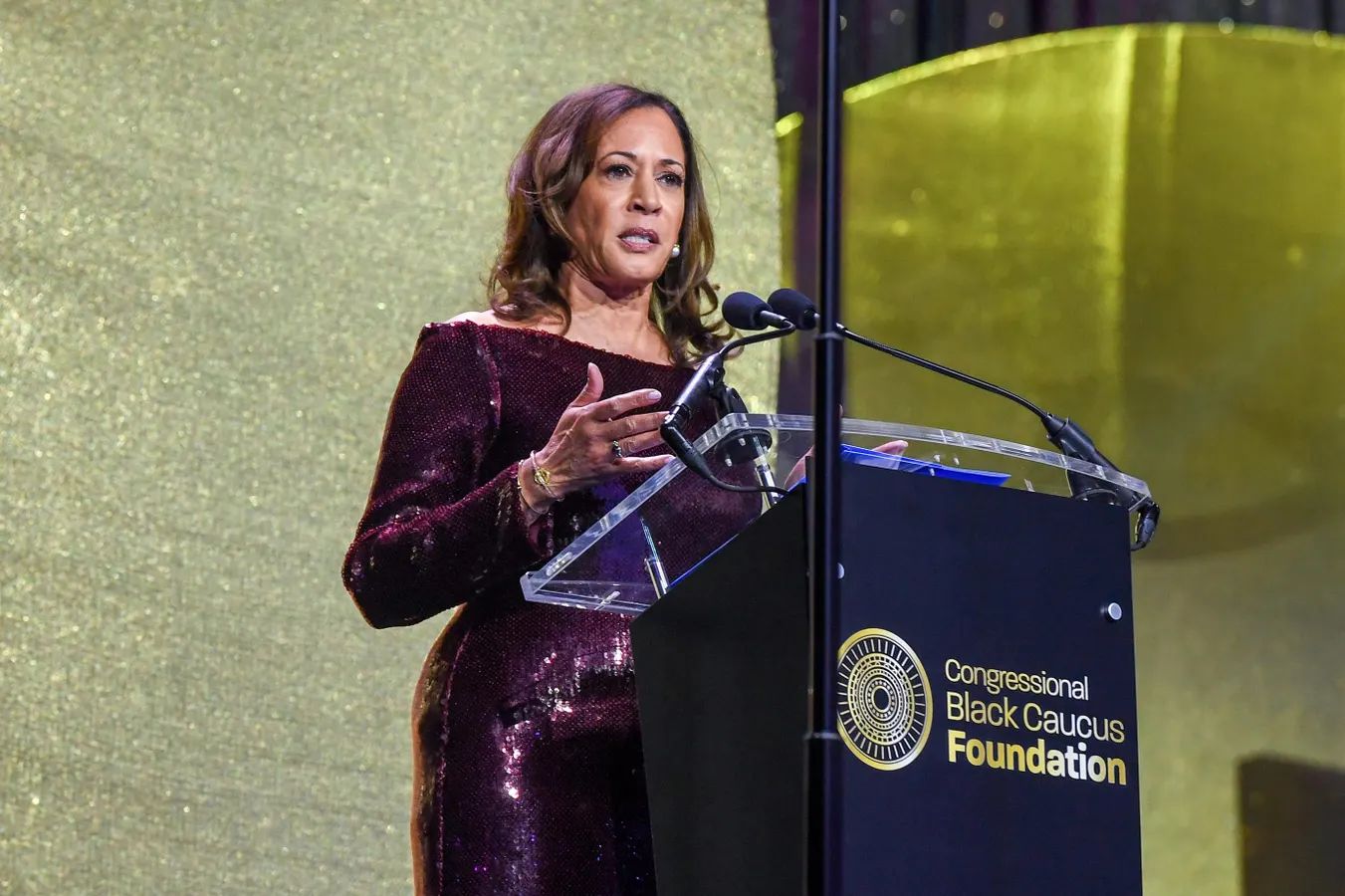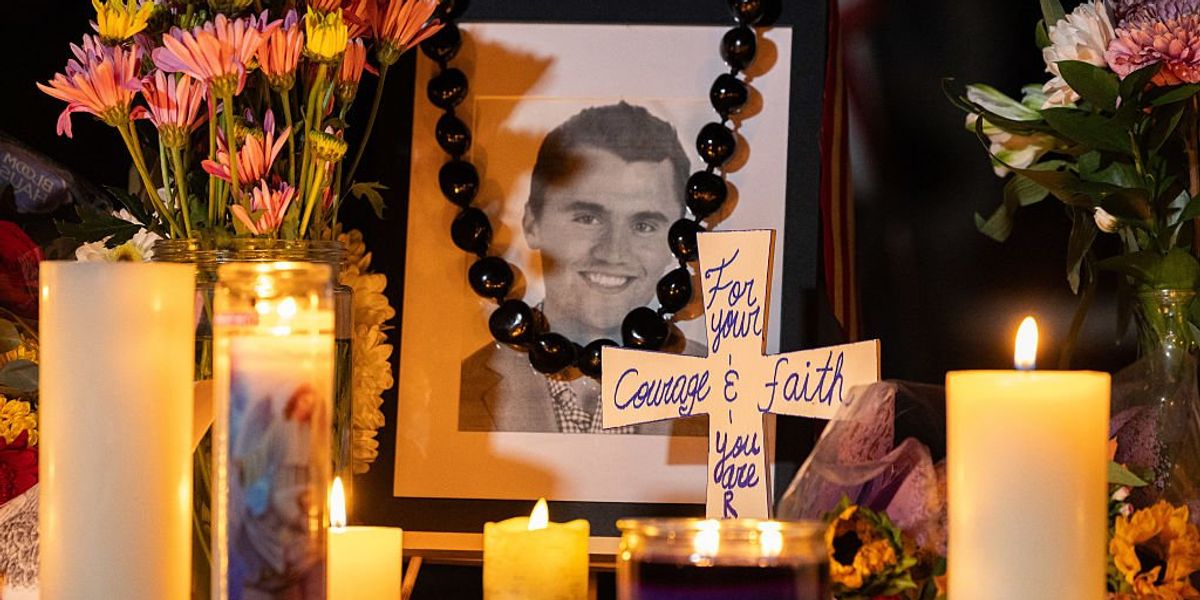Kamala Harris’ 107 Days: A Campaign Postmortem, Party Critique, And Message For What’s Ahead
By Aaron J. Thornton,Contributor,Richard Fowler
Copyright forbes

WASHINGTON, DC – SEPTEMBER 27: Former Vice President of the United States of America Kamala Harris speaks onstage at the Phoenix Awards during the Congressional Black Caucus’ Annual Legislative Conference at Walter E. Washington Convention Center on September 27, 2025 in Washington, DC. (Photo by Aaron J. Thornton/Getty Images)
Getty Images
“For more than half a century, the Congressional Black Caucus (CBC) has not only been the conscience of Congress, but the conscience of America,” Vice President Kamala Harris said.
Clad in a deep purple Sergio Hudson gown, Harris delivered those remarks before a crowd of supporters, members of Congress, and admirers who gave her a hometown hero’s welcome as she received the Phoenix Award, one of the CBC Foundation’s most coveted honors.
The recognition came just days after the release of Harris’ newest book, 107 Days, which chronicles the shortest presidential campaign in history. Part diary, part political postmortem, the book recounts her nearly four-month push for the presidency — an effort that fell short but, in Harris’ telling, exposed the cracks in a Democratic Party infrastructure ill-prepared to support a candidate representing one of its most loyal voting blocs: Black women and the communities around them.
“This experience was almost like living the campaign in reverse, which has not been easy,” Harris writes in the acknowledgments.
Former Vice President Kamala Harris speaks at the first stop of her book tour for her new book about her presidential campaign, “107 Days,” at the Town Hall in New York, Wednesday, Sept. 24, 2025. (AP Photo/Angelina Katsanis)
Copyright 2025 The Associated Press. All rights reserved.
107 Days is at once memoir and critique — a personal account of a brutal campaign and a pointed commentary on a party and political movement that often speak of diversity but fail to build systems to sustain it. Unlike the growing shelf of books analyzing the 2024 election from the outside, Harris’s account delivers an inside view: a candidate who was also vice president, running a race few thought she could win.
Harris’ message, however, extends beyond politics at such a precarious moment. Americans are staring down the barrel of a government shutdown, expanded tariffs, and a weakened social safety net following President Donald J. Trump’s One Big Beautiful Bill, with its deep cuts to SNAP, Medicaid, and other programs serving the vulnerable.
MORE FOR YOU
Meanwhile, Democrats are limping into a midterm election year hoping to claw back at least one chamber of Congress — though their posture and message remain out of step with much of their working-class and Black base.
“With your help, 75 million Americans stood with us last year on behalf of a stronger America,” Harris told the Phoenix Dinner audience on Sept. 27. “They stood with a belief in the promise of America.”
WAYNE, MICHIGAN – AUGUST 08: Democratic presidential candidate, U.S. Vice President Kamala Harris reacts as United Automobile Workers President Shawn Fain (R), speaks at a campaign rally at United Auto Workers Local 900 on August 8, 2024 in Wayne, Michigan. Kamala Harris and her newly selected running mate Tim Walz are campaigning across the country this week. (Photo by Andrew Harnik/Getty Images)
Getty Images
In 107 Days, Harris revisits those 75 million voters, underscoring the faith she places in American workers and their central role in building a more just economy. She recalls campaign stops with the American Federation of Teachers, the International Brotherhood of Electrical Workers, the Culinary Workers Union Local 226 in Las Vegas, and the United Auto Workers (UAW) — unions that once formed the backbone of Democratic politics, especially for Black and Brown workers.
“He asked the members to show up for us it the campaign, putting into action the organizing capacity that has made unions integral to Democrats’ electoral success,” Harris writes, reflecting on her encounter with UAW President Shawn Fain during a 2024 campaign visit to UAW Local 900’s hall in Wayne, Michigan.
Since then, however, the Trump administration has moved aggressively to weaken organized labor, stripping collective bargaining rights from federal employees represented by the American Federation of Government Employees. At the same time, fissures have opened within labor’s relationship to the Democratic Party itself. Both AFT President Randi Weingarten and American Federation of State, County, and Municipal Employee (AFSCME) President Lee Saunders have stepped down from the party’s executive committee — a stark reminder of the peril facing poor and working families and the unions that have long sustained them.
While other post-2024 election books dissect the missteps in staffing, strategy, and message discipline — and the Biden-Harris ticket that cast a long, quiet shadow — Harris’ account is something different. It leans into her experience as a candidate and an undervalued vice president, forced to launch a presidential campaign under extraordinary pressure while senior Biden staff and much of the mainstream media downplayed her role.
HOUSTON, TEXAS – JULY 25: Vice President Kamala Harris addresses the members of the American Federation of Teachers at George R. Brown Convention Center on Thursday, July 25, 2024 in Houston. (Elizabeth Conley/Houston Chronicle via Getty Images)
Houston Chronicle via Getty Images
“What I didn’t know then was that some of his senior staff didn’t share that concern,” Harris writes on page 40 of her book. “In their own calls trying to quell the rebellion, they’d been talking me down, saying, if Joe goes, you’ll get her, strongly implying that I wasn’t up to it.”
The line is striking, not just for its candor but for what it reveals about the dynamics of Democratic power. Harris is unsparing in describing the ways in which party insiders, media narratives, and donor class hesitations all converged to undermine her candidacy. Her voice, sharp and personal, is a reminder of just how lonely the race was for her and how little infrastructure existed to support a campaign led by a Black woman.
Today, the CBC–the largest caucus in the U.S. Congress–is chaired by Rep. Yvette D. Clarke (D-NY), a Black woman of Jamaican descent, similar to Harris. Although nearly half of the CBC’s members are women, the party seems unwilling to build a message or infrastructure that supports that future.
Taken together, the Phoenix Award and the release of 107 Days suggest Harris is engaged in something bigger than 2024. She is shaping a narrative about herself, the Democratic Party, and the country.
US President Joe Biden, center right, and US Vice President Kamala Harris, center left, meet with members of the Congressional Black Caucus in the Oval Office of the White House in Washington, DC, US, on Thursday, Feb. 2, 2023. Biden is hosting the members to discuss police reform legislation as congressional lawmakers look to revisit the issue following the death of Tyre Nichols, a Black man who was fatally beaten by Memphis, Tennessee, police officers. Photographer: Bonnie Cash/UPI/Bloomberg
© 2023 Bloomberg Finance LP
The award tethered Harris to the legacy of the CBC and its role as the “conscience of America.” The book provides a counter-narrative to the conventional wisdom of 2024, a story in which she was not simply a failed candidate, but a truth-teller about the limits of a party that too often underestimates its most loyal base.
“The answer will not come out of Washington, D.C. Their immediate take is to win the midterm and restore some checks and balances on this unchecked and unbalanced president,” states Harris.
She continued, “What we the people must understand is that the dismantling of our democracy did not start with the 2024 election.”
Whether voters , and Harris’ party, are ready to hear that story is another question. For now, she has planted her flag: recognition from Black America’s political vanguard, a book that names names and lays out failures, and a moment in Washington defined by dysfunction and division.
WASHINGTON, DC – JUNE 17: In this handout image provided by NASA, Vice President Kamala Harris hugs children that participated in hands-on STEM activities on the grounds of the Vice President’s residence at the Naval Observatory on June 17, 2022, in Washington, DC. The Vice President and Second Gentleman hosted an evening of NASA STEM activities at the Naval Observatory for military families and local STEM students and their families, including a special screening of Disney Pixar’s Lightyear. Photo Credit: (NASA/Bill Ingalls) (Photo by Bill Ingalls/NASA via Getty Images)
NASA via Getty Images
Editorial StandardsReprints & Permissions



